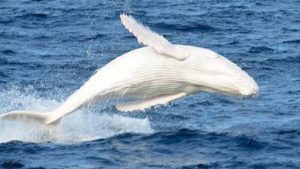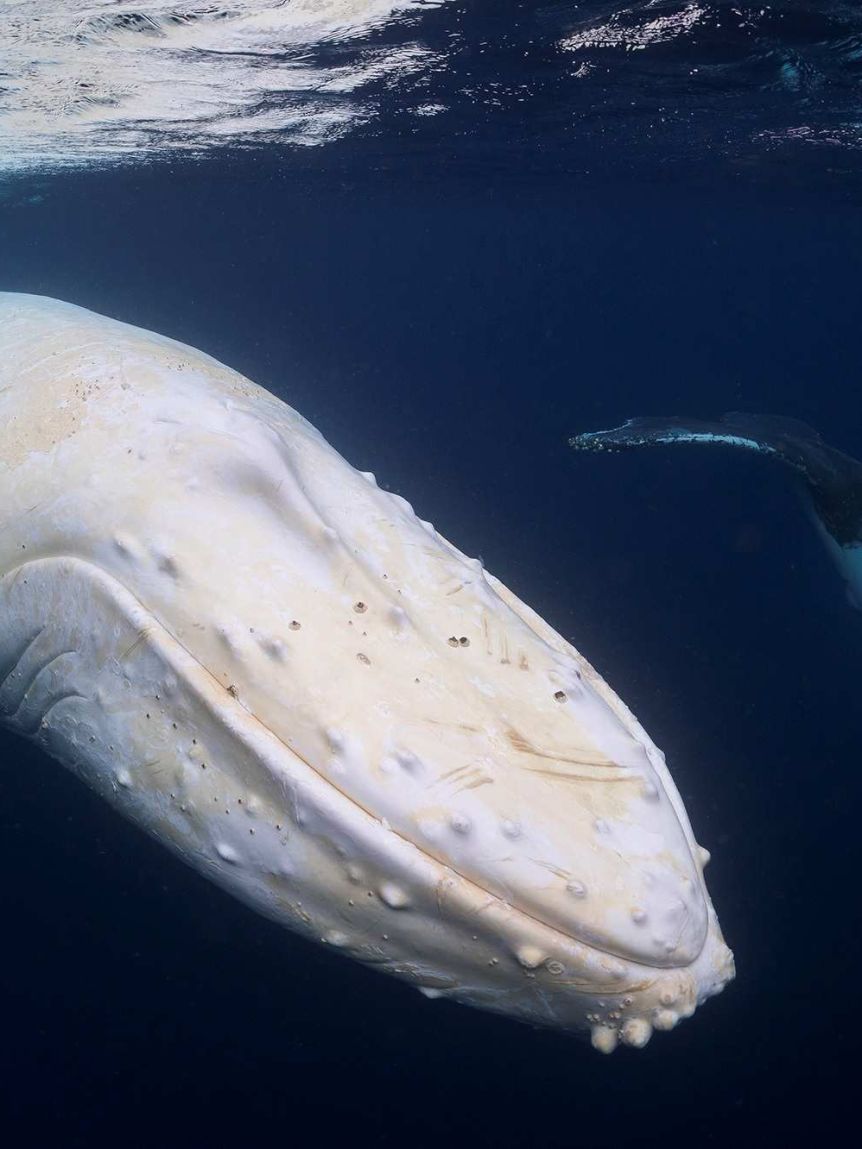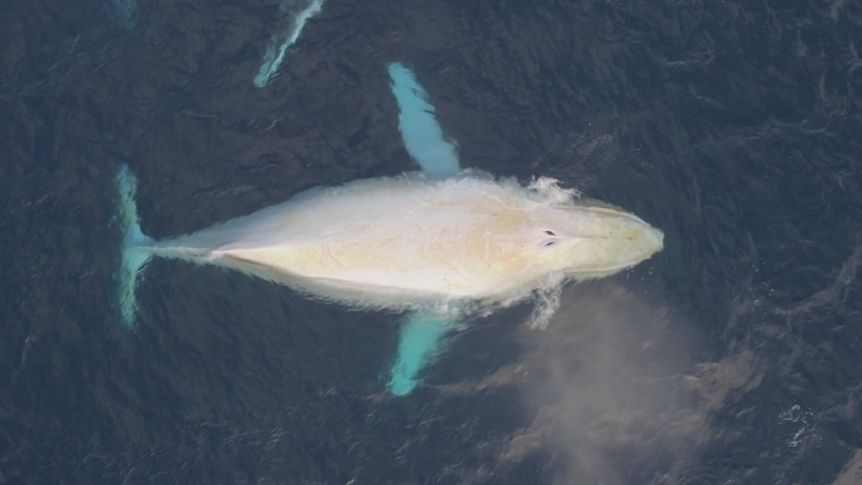
Migaloo: The Elusive White Humpback Whale Has Been Spotted Heading North Along Australia’s Coast
Migaloo, who is also known as the elusive all-white humpback whale, has been spotted heading north along the east coast of Australia as a part of their annual migration.
The extremely rare white humpback whale is one of the 35,000 whales that will make the arduous journey from Antarctica to the waters of Queensland.

If you are wondering what Migaloo means, it literally translates to “white fella”, which is used in a number of Indigenous languages.
According to reports, the White Whale Research Centre and Great Barrier Reef Legacy have a dedicated account for Migaloo to let everyone know about the whale’s movements.
On June 15, 2020, the center said:
A white whale possibly Migaloo has been sighted along the NSW South Coast heading north. Estimated to cruise past Sydney anytime soon and Cape Byron anytime from Wednesday this week.
Migaloo was first spotted in 1991 and has since gained an army of followers and supporters who are looking forward to spotting him.

In 1991, which was the first time he got identified, experts believed to be the only all-white whale in the world.
In 2011, another all-white humpback whale calf was discovered.
Since then, there have only been 3 or 4 more all-white whales that got discovered.
Dr. Wally Franklin, an adjunct fellow at the Southern Cross University and the founding director of the Oceania Project, said that Migaloo is currently in his 30s.

It is expected that he could live as long as 100 years.
Dr. Franklin said:
He is now well and truly fully grown and fully mature. He’s mature socially and physically. It doesn’t appear that he has had any issues with predators and he has an expectation to living as long as 100 years, which is the generally-believed life expectancy. Reports of his sightings have been available for just about every year of his life and so he has been very useful in cataloguing whale movements. Those sightings are very valuable in confirming migratory timing.
Due to laws in Queensland, tour operators are only allowed to stay 500 meters away from the animal;.
If anyone breaches the rule, a vessel can be fined up to AU$16,500.